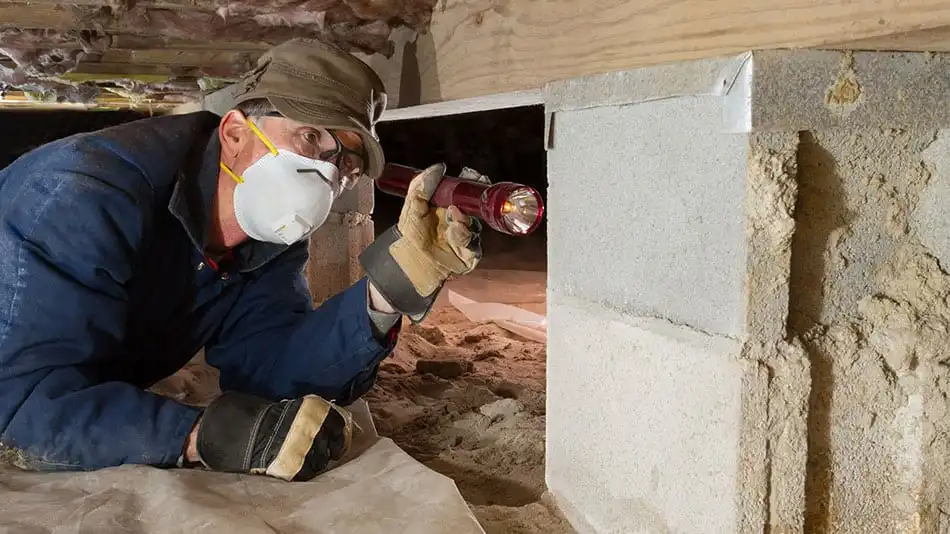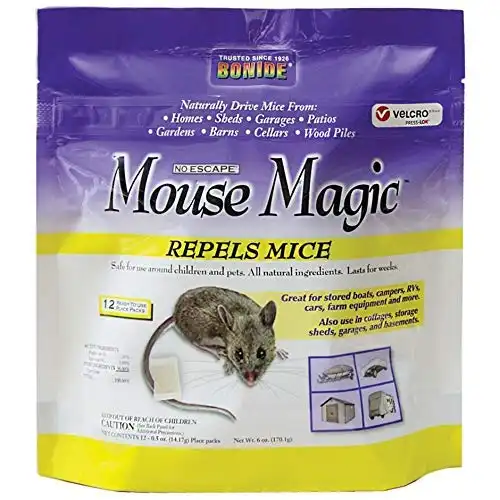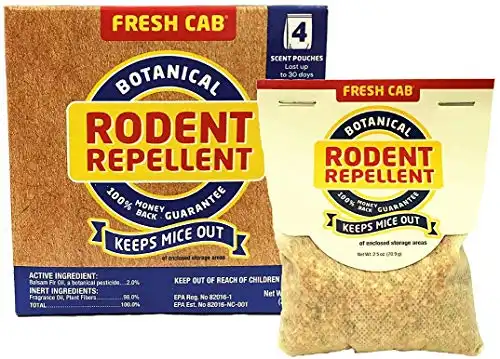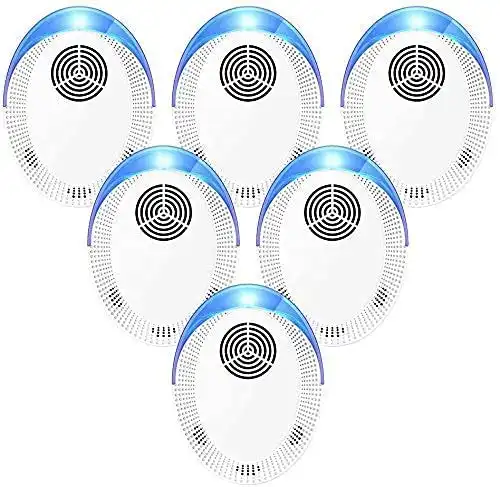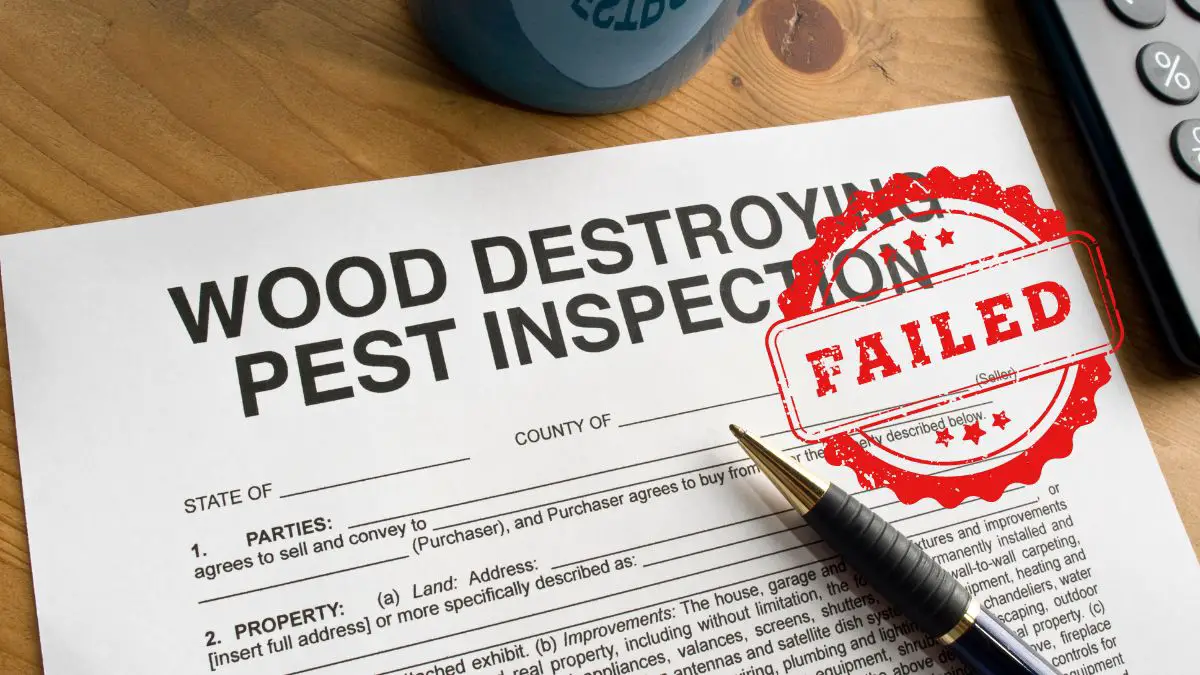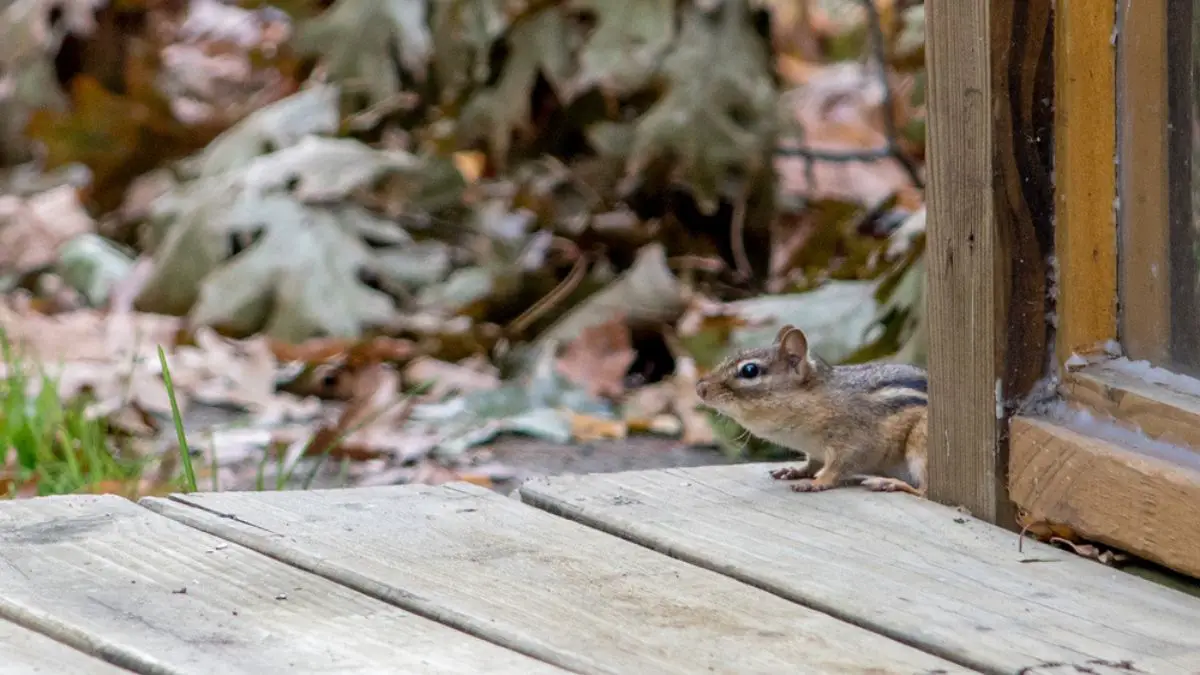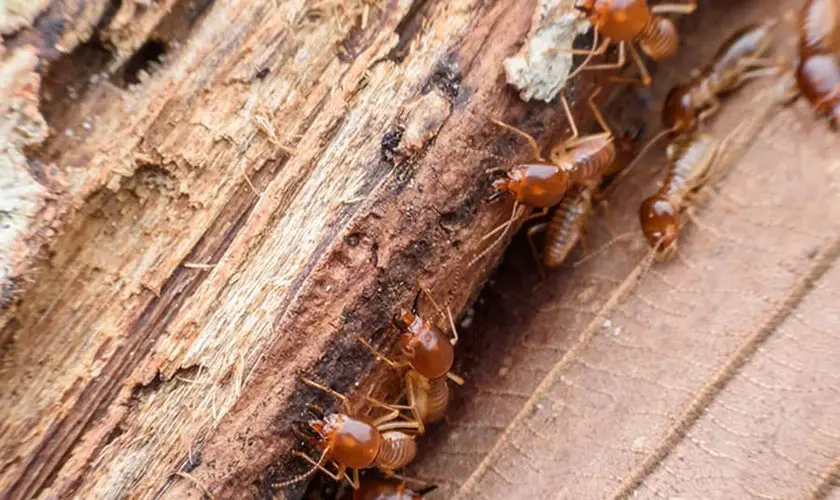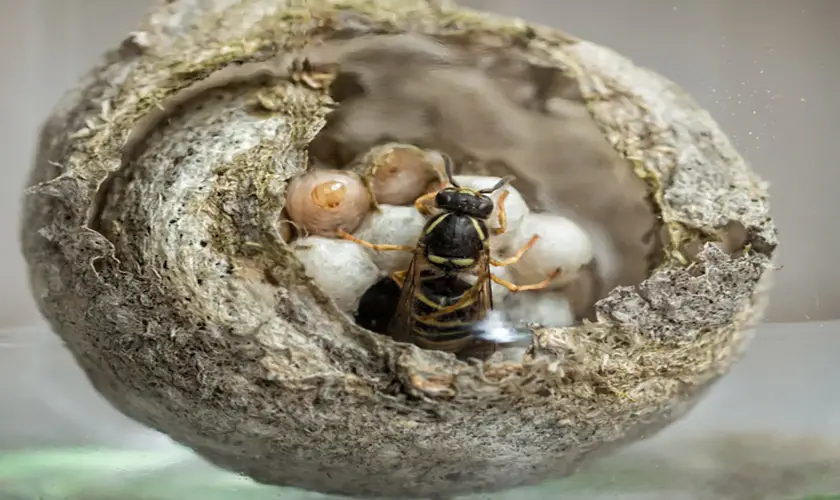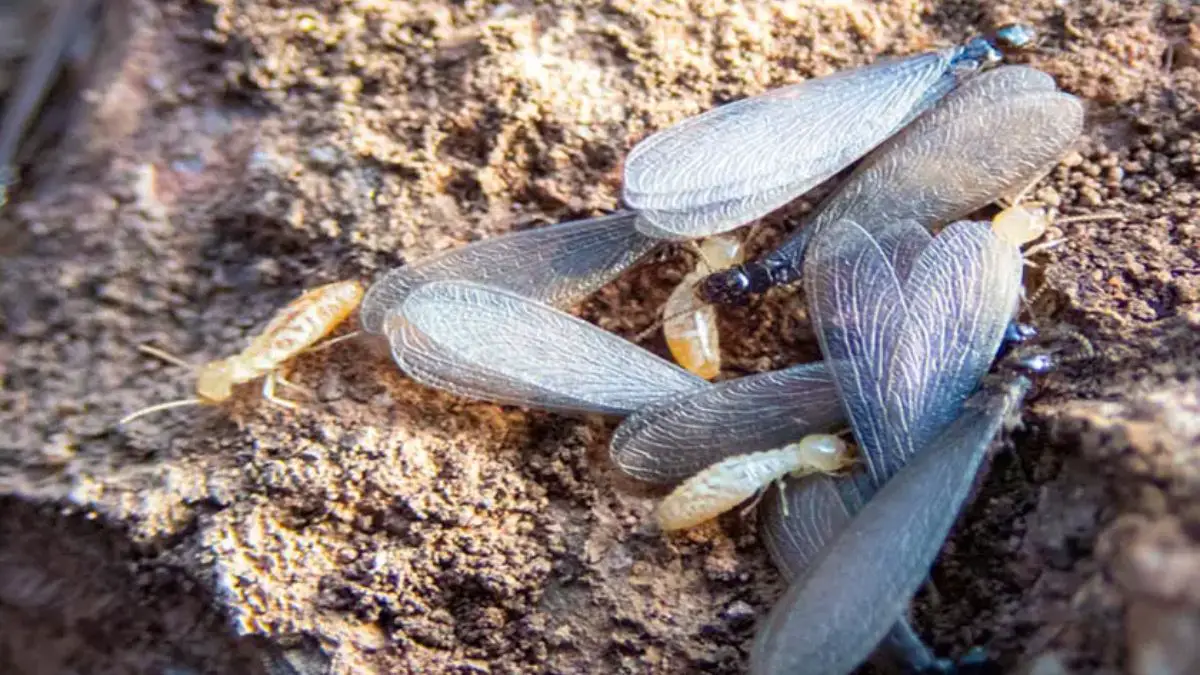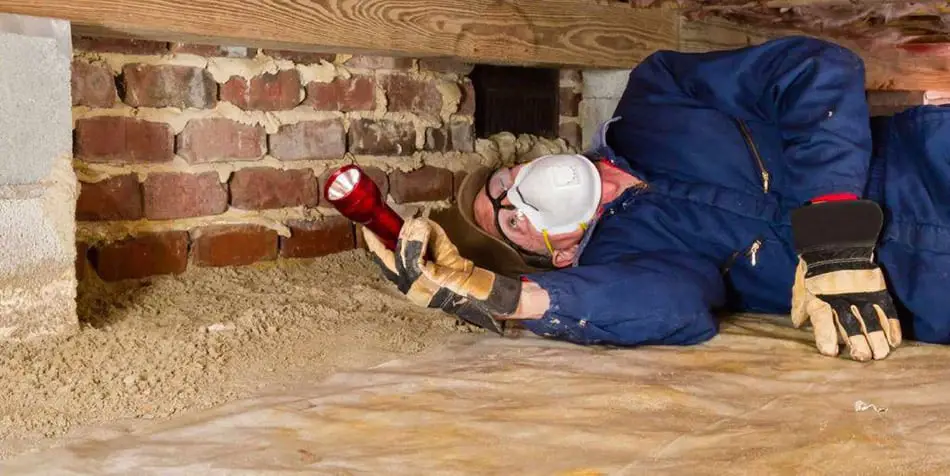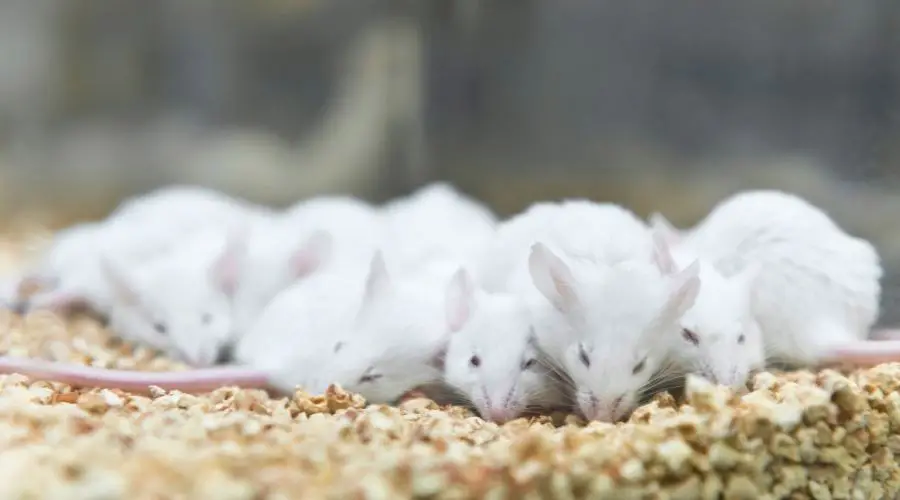
Mice are small rodents who have been pests to humans for a time unknown. In a field, they can be cute; in your yard, they can be a nuisance; but in your house, they are gross and unwelcome.
Their small size and climbing ability allow them to get into your house in various ways. Once inside, they can use your vents as their highway to various rooms of your home. They are particularly attracted to warm heating ducts in the winter. Mice are primarily nocturnal, so they are more active at night.
There are 11 ways to stop mice from coming through your vents:
- Take away their hiding places
- Take away food and water sources
- Use homemade repellents
- Use retail repellents
- Use ultrasonic emitters
- Set lethal traps
- Set non-lethal traps
- Cover your vents with wire mesh
- Clean your vents to prevent their return
- Use pets as deterrents
- Hire professionals
How do you know you have a mouse problem? What attracts mice to your home? These are just some of the questions that we address in this article. We will also provide you with 11 ways to get mice out of your vents and keep them out.
Get FREE quotes from licensed pest control technicians in your area today. Whether you need spraying for ants, roaches, spiders, ticks, mosquitos, or bed bugs, We Can Help! All technicians are screened, licensed, and insured.
Signs That There Are Mice In Your House
Sightings: If you see mice in your yard or your house, the chances are that they are using your vents to enter the house. Sightings can be rare, considering how many mice can live in your vents simultaneously, but they are incredibly human-shy.
Mouse droppings: If you find brown or grey rice-like pellets in your vents or other dark corners of the house, you may have a mouse problem. The brown droppings are fresh, while the gray droppings are older. You can collect a few droppings using gloves and take this sample to a pest control specialist to confirm if they are mouse droppings.
Mouse nests: Look inside your vents. If you can see piles of loose material, these can be mouse nests and will indicate a problem.
Pattering footsteps: If you hear the sound of tiny feet running to and fro somewhere above you, this is likely to be mice using your vents as a highway. You are more likely to hear these sounds at night as mice are nocturnal.
Gnawing sounds: Another good indication that you have a mouse problem is hearing gnawing sounds from inside your walls and ceilings. As with the pattering footsteps, you are likelier to hear gnawing at night.
Smells: Mice are foul creatures, so you might start to notice a funny smell in your house. Unfortunately, this smell is spread around whenever you turn on the heating or cooling systems if mice live in your vents. Worse than the smell of live mice is the smell of dead mice.
Mice can get trapped inside ducts and die without you even knowing they are there. You will only be alerted that a rotting smell permeates your home. If this is the case, call the professionals to find the carcass.
Electrical issues: Mice will chew on your electrical wiring. If you start to notice your lights flickering or a once-perfect electrical outlet suddenly become faulty, you might have a mouse problem.
If you start having these electrical issues, you need to hire an electrician immediately because this damage to the wiring is a fire hazard. You may also have to skip the home pest control and go straight for a professional if the mice are already interfering with your electrics.
Damaged pipes, insulation, walls, etc.: Mice can be very destructive, especially when many live in one house. They chew through pipes, cables, insulation (despite its toxicity), and even walls!
They will also chew through cardboard and plastic containers, so you might have a mice problem if you miss the corners of any of your storage boxes or food containers. Mice can also damage your vent openings as they try to make an easier passage into your house.
Damp and leaks: If damp patches start to appear on your ceiling boards, or you start to have leaks in your roof, this can indicate a mouse problem. Mice will chew through water pipes and joints (unless they are metal) and chew holes in your weatherproofing.
Bird feeders: If you enjoy birdwatching and keep bird feeders for this purpose, you might notice that you need to refill these feeders more and more often. This may be because mice supplement their diet with this convenient food source.
Talcum powder test: You can use the talchttps://www.cancer.org/cancer/cancer-causes/talcum-powder-and-cancer.htmlum powder test to confirm that mice are in your vents. Sprinkle talcum powder at the outside entrance to vents or the inside openings of the vents.
Put it along the walls because mice hug the walls when they run. If the talcum powder appears disturbed, or you can see little footprints, you will know that you have a mouse problem. However, be careful with this way because talc is linked to cancer.
So, now that you know the signs indicating you may have mice in your house, how do you get them out and keep them from returning?
1. Take Away Mouse Hiding Places In And Around Your House
Mice in your yard can invade your home quickly, and they also pose a health risk to you and your pets if they live close to you. Taking away their hiding places is an excellent start to ridding yourself of this pest.
Hiding Places Outside The House
- Trim trees near your house and move bushes away from your walls: Mice will hide in the roots and even trees’ branches. They will also use trees like a ladder to reach entrances to your house, like high vents, window cracks, and chimneys. Dense shrubbery also attracts mice as it provides a good hiding spot. If these bushes are right up against your house wall, it is an easy step for them to take.
Trimming trees and keeping bushes away from your house walls may discourage mice from entering your house through your vents.
- Stack firewood away from your house: Stacks of firewood are also ideal hiding places for mice. Stacking wood neatly will minimize the spaces in which mice can hide, and moving the stack several feet away from the house can also discourage mice from entering your house.
- Untidy yards and porches are an attraction to mice: Mice will hide in piles of debris and dead leaves and under “porch junk,”; the things you don’t want in the house but haven’t gotten around to fixing, donating, or dumping. Keeping your yard and porch clean should be prioritized if you want to avoid mice becoming a problem.
Hiding Places Inside The House
Your vents are a great hiding place for mice, but there are also other places where they hide inside. By eliminating these, you are narrowing their options.
- Keep attics tidy and uncluttered: Mice prefer dark and undisturbed areas like attics. To discourage mice from seeking shelter in your attic, you should clear out clutter and include your attic in your house-cleaning routine.
- Clean behind and under big appliances and furniture: Mice will hide underneath or behind your refrigerator, washer, dryer, chest freezer, bed, wardrobe, chest of drawers, etc. By regularly moving these, you can eliminate many desirable hiding spots for mice.
2. Take Away Food And Water Sources In And Around Your House
As mentioned, keeping mice out of your yard, not just out of your house, is important. It is such an important part of pest control and applies to almost all pests, not just mice. So, what is attracting mice to your yard and then luring them into your house?
Food And Water Sources Outside Of The House
- Trash cans: Trash cans are a food attraction to rodent scavengers like mice. They will eat any food, from cereal crumbs to carrot tips. They will even eat paper. Keeping your outside trash can properly sealed will minimize the chance that many different pests, including flies, mice, and raccoons, will cause you problems.
Another tip is to dump your trash frequently so that the odor stays as weak as possible and clean your trash can regularly for the same reason. Regular cleaning can also help to make the smell of waste with the smell of cleaning chemicals.
Keep your trash cans away from the side of your house.
- Compost piles: Compost piles are attractive to mice because as a food source. The degrading organic matter gives off a powerful odor that can attract mice into your yard. So, instead of having an open compost heap, use a specialized composting bin.
- Don’t leave pet food out: This is tricky because some pets are difficult eaters and prefer to nibble a bit here and there instead of eating a complete meal in one go. However, if you have a problem with mice, you must make some changes. Don’t leave food out at night when mice are most active. Don’t leave stray bits of kibble on the ground, and don’t toss the leftovers into the garden.
- Bird feeders: Mice will eat the seed inside your bird feeders if they can reach it, but they will also graze for fallen seeds on your lawn beneath the bird feeders. You may have to take down your bird feeders for a time. Otherwise, you should ensure they can’t be reached by animals other than birds, move them further from your house, and diligently clean up the yard beneath them. You can try placing a bowl or tub beneath the bird feeder to collect the dropped seeds and then empty this every day.
- Eliminate potential water sources in the garden: This is bad news for bird watchers because full birdbaths attract mice. It would help if you kept these empty or moved them far away from your house. Dripping garden taps and irrigation tanks, water collecting in poor drainage areas, and overwatered lawns and flowerbeds are also water sources for mice that need to be eliminated. Good garden maintenance will help to reduce water collecting in the yard.
Food And Water Sources Inside Of The House
- Crumbs and spills: Crumbs and spills will attract mice, so you should keep your house clean. Take care to clean inside pantries, food cupboards, and under and behind kitchen appliances, which have added benefit of acting as hiding places for mice to avoid human detection.
- Pet food: Pet food can also be a problem in the house; as mentioned previously, you can’t always avoid leaving it out. The best thing to do is put it in a more open spot to which mice are less likely to venture, diligently pick up stray bits of kibble, and put the food away at night, if possible.
- Food on counters, etc.: Keep all food in sealed containers. Plastic is better than cardboard boxes, but mice can also chew through plastic, so keep an eye open for teeth marks. Put the most attractive foods (cereals, grains, breads, nuts, cookies, etc.) into metal tins.
- Inside trash cans: The same rules apply to inside trash cans. Keep them tightly sealed, empty them frequently, and wash them regularly.
- Eliminate inside water sources: There is little you can do about pet water bowls other than keeping them in open areas. But you should regularly empty things like condensation trays from air conditioning units and refrigerators. You should repair leaking taps, and bathtubs and kitchen sinks should always be emptied after use.
3. Repel Mice Using Homemade Mouse Repellents
Mice hate certain smells. You can use this to your advantage. Using homemade repellents might have limited effectiveness, but they may augment the effects of other methods employed to keep mice out of your vents. One issue with homemade scent repellents is that mice can become desensitized to them.
Peppermint, clove, spearmint, and eucalyptus oils: Cotton balls soaked with any or all of these oils can be placed at the entrances to the vents to repel mice from entering. The smell should also be carried into the vents and drive out the mice who have already entered the vent.
When using essential oils, use tweezers or forceps to handle the soaked cotton balls as essential oils are very concentrated and can cause skin irritation following direct contact. Alternatively, you can dilute the essential oil of choice with a carrier oil, which will also dimmish the potency of the smell.
Another option is putting a few drops of peppermint, clove, spearmint, or eucalyptus essential oil into a spray bottle with water and a solubilizer with dish soap, shake it up and spray it onto the entrances to the vents.
Scented dryer sheets: People also report that the smell of scented dryer sheets can repel mice, so you can put these at the vent entrances.
Cayenne pepper: Sprinkling cayenne pepper is also reported to repel mice, so you can sprinkle a border of this spice in front of the vent entrances.
Cat litter: Some retail mice repellents (which we will discuss in the next section) contain the scent of predator urine. If you have a cat, sprinkle some of their used litter tray sand around the vent entrances to repel mice.
4. Repel Mice Using Retail Mouse Repellents
Based on Amazon ratings, the following are some of the best store-bought mice repellents.
This is a natural mouse repellent that contains cinnamon and peppermint essential oils. It comes in pouches, which you can place at the entrance to your vents.
This is also a natural mouse repellent. It contains spearmint and peppermint essential oils.
This plant-based and eco-friendly mice repellent also work based on the scent (balsam fir oil). It comes in pouches, which you can place at the entrances of vents.
If you go to the store, ask someone for assistance in choosing the best repellent. The wide array can be daunting when you don’t know what you are looking for.
5. Repel Mice Using Sonic Or Ultrasonic Emitters
Sonic and ultrasonic pest repellents give off a sound that cannot be heard by humans but is irritating to rodents. There are three main types of emitters: electric, battery-powered, and solar-powered. The best choice would be to put a solar or battery-powered emitter at the vent entrances. Some are even motion sensing.
You need to be careful in choosing an emitter with a frequency that will not bother your pets.
6. Set Lethal Traps In Your Ducts
If you set lethal mouse traps yourself, you must be willing to deal with the bodies. If not, consider non-lethal traps, other repellents, or calling in a professional.
Turn off your HVAC. Open the inside vents and set a few traps up against the vent walls. Put the bait part against the wall because mice tend to hug the wall.
Lethal traps are typically baited traps, so you will need to bait the trap with a bit of food. Peanut butter is a popular option, as is chocolate. Some people use cheese or bacon as well.
There are two main types of lethal mouse traps: snap and electric traps. Both kill quickly when set up properly, so follow the instructions carefully.
You need to check the traps daily. If they have caught a mouse, remove the body immediately. Make sure you use gloves and dispose of them correctly. If traps have been sprung, but you caught no mouse, rebait it and reset it. If you don’t check your traps daily, you can end up with rotting mice in your vent, which is gross and unhealthy.
7. Set Non-Lethal Traps In Your Ducts
If you would prefer to use non-lethal traps, you can try sticky traps or catch traps.
As you may guess, sticky traps are coated in a sticky substance to which the mice are attracted and trap them once they walk on it. You will need to remove the mice from the traps and free them wherever you think is a good place. You can’t free them too close to your yard, though, or they will just come right back. One of the main drawbacks of sticky traps is that you cannot reuse them.
You can also use normal catch traps to catch mice. You will then need to find a spot to release them safely. Catch traps need to be baited, and you can use peanut butter, cheese, nuts, pet food, etc.
As with the lethal traps, you have to check non-lethal traps daily. If you do not, the mice could die of starvation or thirst, which is cruel and will leave you with bodies to clean up.
You can set rat traps in the yard to get the mice before they move into your vents.
8. Cover Your Vents With Stainless Steel Mesh
Stainless steel is recommended because mice are fierce chewers and can get through anything less tough. You need to use mesh with small apertures because the mice are tiny.
Before putting mesh over your vents, check the safety and building regulations to see if this is allowed.
9. Clean Your Vents To Prevent Mice From Returning
Mice release pheromones that attract other mice. Once you have rid yourself of your mouse problem, you don’t want it to return. A thorough cleaning will help to prevent this.
The droppings, urine, and hair left behind by mice potentially harm your health, so it needs to be cleaned away.
10. Pets Can Serve As Mouse Deterrents
Cats and dogs are natural predators of mice. You don’t want wild mice around your pets as they carry ticks and diseases. However, the smell of your pet may be enough to keep mice out of your yard.
11. Hire Professional Rodent Exterminators
If you are unwilling to deal with live or dead mice, you should probably investigate professional exterminators. Additionally, you should call in the professionals if the infestation is intense or if they have gotten into your wiring.
Professional rodent exterminators should also know the best ways of cleaning your house and preventing further infestations.
Why You Shouldn’t Use Poisons
Poisons are not a good idea for mice. The poisons don’t usually work immediately. This means the mouse will have time to move into an unknown or unreachable part of the vent, or even to a wall cavity, before dying.
You may not know that they have died, or you may not be able to find or reach their bodies, and they will rot in your house. This is not only smelly; it is potentially hazardous to your health.
Another issue with poisons is that they may make it out of your house and be eaten by a bird or cat. The poison can then also kill these animals.
Conclusion
Preventing mice from coming through your vents is only part of the solution to ridding your house of these pests. You have to ensure that there are no hiding places or food and water sources in your yard that would bring them into proximity to your house. You need to seal off all entrances, not just vents, that mice could use to enter your home. And you need to eliminate all hiding places and food and water sources inside the home.
You can prevent them from using your vents as an entry point and highway to other parts of your house by marking the vent openings with homemade or store-bought mice repellents.
Setting up sonic and ultrasonic emitters at the entrances to vents can also assist in repelling mice, especially if used in conjunction with another type of repellent. You can set up lethal or non-lethal traps inside your vents to catch the mice who have already moved in.
Cleaning and covering your vent with metal mesh can prevent them from returning, and keeping pets can be a natural deterrent for mice. If you are not happy to deal with the bodies of living or dead mice, if your infestation is bad, or if the mice have already gotten into your electrics, you should hire a professional.
Get FREE quotes from licensed pest control technicians in your area today. Whether you need spraying for ants, roaches, spiders, ticks, mosquitos, or bed bugs, We Can Help! All technicians are screened, licensed, and insured.


